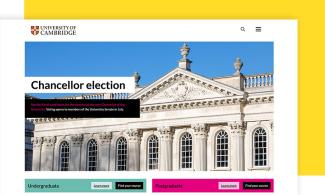Filters
Content Type
Topics
SSL for WordPress: Installation, Configuration and Troubleshooting
Image

"Your connection is not secure."
If you've ever seen this warning on a website, you know how quickly it makes visitors lose trust. For WordPress site owners, implementing SSL isn't just about security – it's about credibility, improved search rankings and visitor safety.
Here, we’ll walk you through everything you need to know to get SSL running smoothly on WordPress. From obtaining and activating your SSL certificate to configuring HTTPS across your site and using Pantheon’s hassle-free automated SSL setup, we’ve got you covered to ensure your WordPress site stays secure, credible and fully optimized!
Understanding SSL and its importance for WordPress
SSL (Secure Socket Layer) is a vital security protocol that encrypts the data exchanged between a user’s browser and your website. This encryption is essential for keeping sensitive information – like login details, credit card numbers and personal data – safe from interception.
Here’s why SSL matters for WordPress and how it strengthens security, improves SEO and builds trust with your visitors:
1. Security
Without SSL, the data sent between your site and its users travels in plain text, leaving it vulnerable to interception by malicious actors through “man-in-the-middle” attacks. SSL encryption secures this connection, creating a private “tunnel” for data to flow safely between your site and your visitors. Whether you run a blog or an e-commerce store, SSL is critical to protecting user privacy and maintaining the integrity of your website’s interactions.
2. SEO
In addition to protecting user data, SSL can directly influence your site’s visibility on search engines. Google has made HTTPS a ranking signal, favoring websites with SSL certificates. This means that adding SSL to your WordPress site is both a security measure and a way to potentially improve your Google ranking.
3. Trust and Credibility
Users are becoming increasingly vigilant about online security, especially on sites where they need to share personal information. A WordPress site secured with SSL shows a padlock icon in the browser’s address bar, reassuring visitors that their data is safe. This trust factor is particularly crucial for businesses and e-commerce sites – users are much more likely to engage and buy from online businesses they perceive as secure.
4. Compliance
Many regulations, such as the General Data Protection Regulation (GDPR) in the EU and the Payment Card Industry Data Security Standard (PCI DSS) for e-commerce sites, mandate the use of SSL to protect customer data. If your WordPress site handles sensitive user information, failing to implement SSL could expose you to legal risks or financial penalties.
Obtaining and Activating Your SSL Certificate
To secure your WordPress site with SSL, the first step is obtaining and activating an SSL certificate. This certificate acts like a digital ID, confirming your site’s authenticity and enabling encrypted connections between your site and its visitors. There are two primary ways to obtain and activate an SSL certificate, depending on your hosting provider and your preferred setup method:
Method 1: SSL Via Your Hosting Provider
Most hosting providers, including Pantheon, offer SSL certificates as part of their hosting packages – often at no extra cost. This option is typically the easiest, as it streamlines the entire process. Here’s how to get started with SSL through your hosting provider:
- Check for free SSL availability: Many hosts provide SSL certificates through Let’s Encrypt, a trusted certificate authority that offers free, automated SSL.
- Access your hosting dashboard: Log into your hosting control panel and go to settings labeled "SSL," "Security," or "HTTPS."
- Enable SSL: Activate the SSL certificate with a simple click. The hosting provider will handle the technical work of issuing and installing the certificate on your site.
- Verify SSL installation: Once activated, verify that your site is accessible via https:// and that the padlock icon in the browser’s address bar is displayed.
Method 2: Manual Installation
For advanced users or if your hosting provider doesn’t support SSL, you may need to install an SSL certificate manually. This method is more technical but allows for complete control over the SSL setup:
- Obtain an SSL Certificate: Purchase a certificate from a trusted authority like Comodo or DigiCert, or generate a free one through Let’s Encrypt.
- Generate a CSR (Certificate Signing Request): This is usually done through your hosting provider. The CSR contains essential information about your site that is needed to issue the certificate.
- Install the certificate: Upload the SSL certificate to your server using your hosting control panel or through the command line, depending on your server’s setup.
- Update WordPress URLs: Go to Settings > General in your WordPress dashboard and update your site URLs from http:// to https://.
- Configure .htaccess for HTTPS (on Apache servers): To ensure all traffic uses HTTPS, add the following code to your .htaccess file:
RewriteEngine On
RewriteCond %{HTTPS} !=on
RewriteRule ^ https://%{HTTP_HOST}%{REQUEST_URI} [L,R=301]
Automate Your SSL With Pantheon
Setting up SSL manually can be a bit of a challenge, especially if you’re not familiar with server configurations or the certificate renewal process. On top of the initial setup, SSL certificates need to be renewed periodically and overlooking this can lead to expired certificates that leave your site vulnerable and unencrypted.
At Pantheon, we eliminate these potential pain points by automating both the installation and renewal processes, making SSL implementation simple and maintenance-free. We offer free, automated SSL certificates through Let’s Encrypt at no cost. Here’s how this makes securing your site effortless:
Automatic SSL Provisioning
When you launch a new site on Pantheon, SSL certificates are automatically provisioned for your domains. This means there’s no need to go through the hassle of requesting, verifying and installing the certificate manually.
Seamless Renewal
SSL certificates need to be renewed regularly to maintain security, and failing to renew them can result in expired certificates that disrupt your site’s HTTPS status. Our platform automatically renews your SSL certificates well before they expire, so you never have to worry about unexpected downtime or security lapses.
No Configuration Needed
Pantheon handles all the technical details behind the scenes, so there’s no need for manual server configuration or troubleshooting. HTTPS redirects are automatically enforced across all connections, ensuring every visitor to your site experiences a fully encrypted connection. With Pantheon, you can avoid time-consuming setup tasks and know your site’s security is in expert hands.
Support for Custom Domains
Pantheon’s automated SSL doesn’t just cover default Pantheon domains; it also extends to any custom domains you add to your site. This flexibility means that whether you’re using Pantheon’s standard URLs or your own branded domain, SSL protection is automatically applied.
Maximizing SSL Benefits: Security and Performance With Pantheon
Improved Site Speed with HTTP/2
Pantheon supports HTTP/2, a modern protocol designed to work with HTTPS to deliver faster load times. HTTP/2 allows multiple files to be transferred simultaneously over a single connection, which speeds up page loads and enhances user experience. This boost in performance makes your site more enjoyable for visitors and also contributes to better SEO – search engines tend to favor sites that load quickly and provide a great experience.
Global Content Delivery Network (CDN) Integration
Pantheon’s Global CDN works smoothly with SSL to deliver your site’s content quickly and securely. The CDN caches your content across multiple locations worldwide, reducing load times by bringing your site’s assets closer to your users. This combination of SSL encryption and a global CDN keeps your site both fast and secure, no matter where your visitors are located.
Minimal Impact on Server Performance
Some site owners worry that SSL could slow down their websites. However, Pantheon is optimized to handle encrypted connections with minimal impact on performance. In fact, thanks to Pantheon’s infrastructure, your site will likely run faster with SSL than it would on many other platforms. Pantheon’s optimizations ensure that the benefits of SSL – security, SEO and trust – come without sacrificing performance.
Secure Your WordPress Site with Pantheon’s SSL Solutions
It’s clear that SSL protection enhances trust, improves search rankings and provides a better user experience. With Pantheon’s automated SSL solutions, enabling SSL on your WordPress site has never been simpler. From free SSL certificates via Let’s Encrypt to smooth integration with optimized infrastructure, Pantheon empowers you to secure your site without the hassle of manual setup or ongoing maintenance.
Pantheon goes beyond basic SSL setup, optimizing your site’s security, performance and SEO all in one. By using its automated SSL, you unlock a streamlined path to a fully encrypted, high-performing website that provides peace of mind to both you and your visitors.
Now’s the time to try Pantheon for yourself to enhance your site’s security, gain a ranking edge and boost user trust with a fully encrypted experience!


